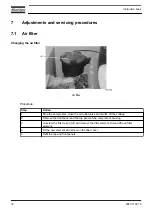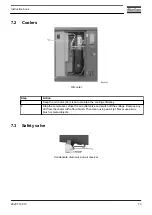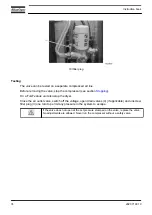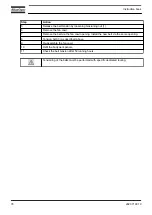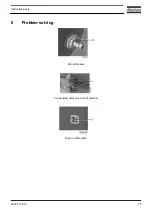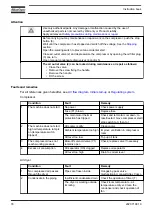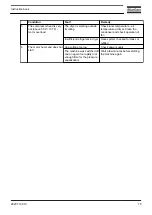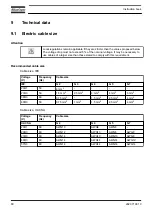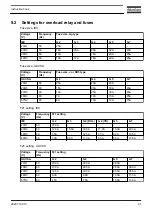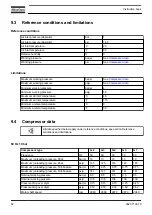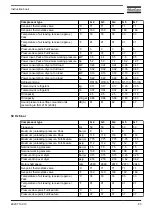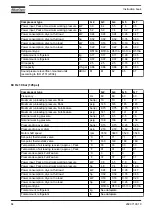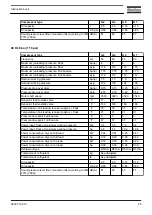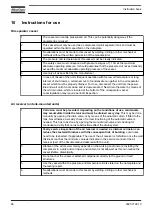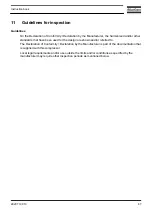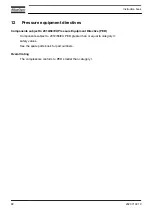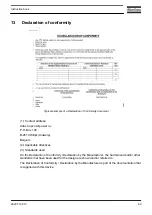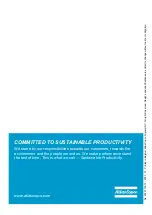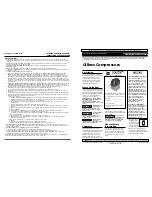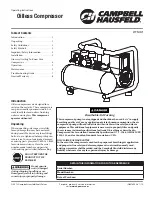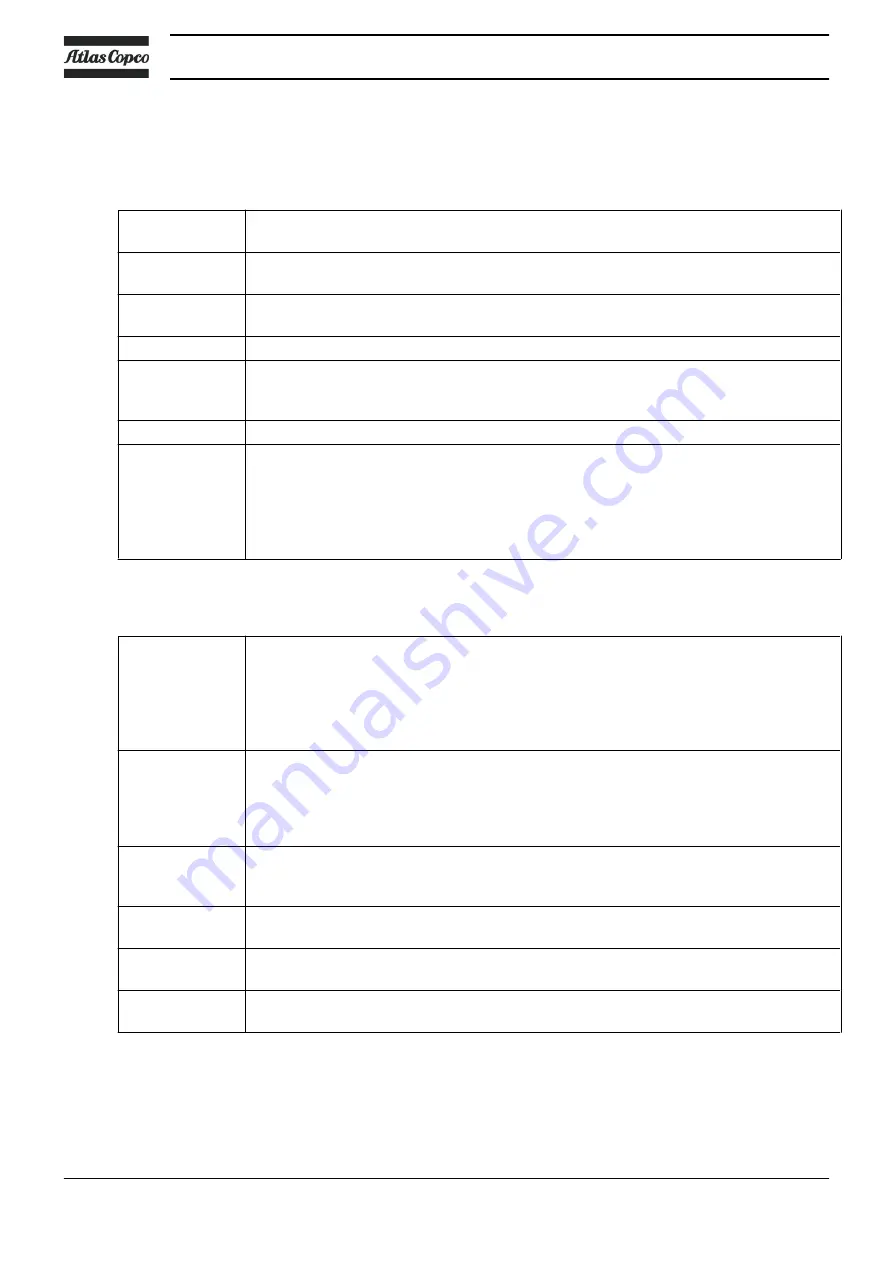
10
Instructions for use
Oil separator vessel
1
The vessel can contain pressurized air. This can be potentially dangerous if the
equipment is misused.
2
This vessel must only be used as a compressed air/oil separator tank and must be
operated within the limits specified on the data plate.
3
No alterations must be made to this vessel by welding, drilling or other mechanical
methods without the written permission of the manufacturer.
4
The pressure and temperature of this vessel must be clearly indicated.
5
The safety valve must correspond with pressure surges of 1.1 times the maximum
allowable operating pressure. It should guarantee that the pressure will not permanently
exceed the maximum allowable operating pressure of the vessel.
6
Use only oil as specified by the manufacturer.
7
In case of misuse of the units (frequent operation with too low oil temperature or long
interval of shut down), a certain amount of condensate can gather in the oil separator
vessel which must be properly drained. To do so, disconnect the unit from the power
line and wait until it cools down and is depressurized. Next drain the water by means of
the oil drain valve, which is located at the bottom of the oil separator vessel.
Local legislation may require periodic inspection.
Air receiver (on tank-mounted units)
1
Corrosion must be prevented: depending on the conditions of use, condensate
may accumulate inside the tank and must be drained every day.
This may be done
manually by opening the drain valve, or by means of the automatic drain, if fitted to the
tank. Nevertheless, a weekly check of correct functioning of the automatic valve is
needed. This has to be done by opening the manual drain valve and checking for
condensate. Verify that no rust obstructions affect the drain system.
2
Yearly service inspection of the air receiver is needed, as internal corrosion can
reduce the steel wall thickness with the consequent risk of bursting
. Local rules
need to be respected, if applicable. The use of the air receiver is forbidden once the wall
thickness reaches the minimum value as indicated in the service manual of the air
receiver (part of the documentation delivered with the unit).
3
Lifetime of the air receiver mainly depends on the working environment. Installing the
compressor in a dirty and corrosive environment is not allowed, as this can reduce the
vessel lifetime dramatically.
4
Do not anchor the vessel or attached components directly to the ground or fixed
structures.
5
Use the vessel within the pressure and temperature limits stated on the nameplate and
the testing report.
6
No alterations must be made to this vessel by welding, drilling or other mechanical
methods.
Instruction book
86
2920 7199 10
Summary of Contents for G 2
Page 1: ...INSTRUCTION BOOK OIL INJECTED ROTARY SCREW COMPRESSORS G 2 G 3 G 4 G 5 G 7 ...
Page 2: ......
Page 15: ...2 2 Air flow Pack Air flow floor mounted Pack units Instruction book 2920 7199 10 13 ...
Page 18: ...2 3 Oil system Oil system Pack Instruction book 16 2920 7199 10 ...
Page 20: ...2 4 Cooling system Pack units Instruction book 18 2920 7199 10 ...
Page 60: ...Start up Start up sheet Label on the top Instruction book 58 2920 7199 10 ...
Page 92: ......
Page 93: ......

